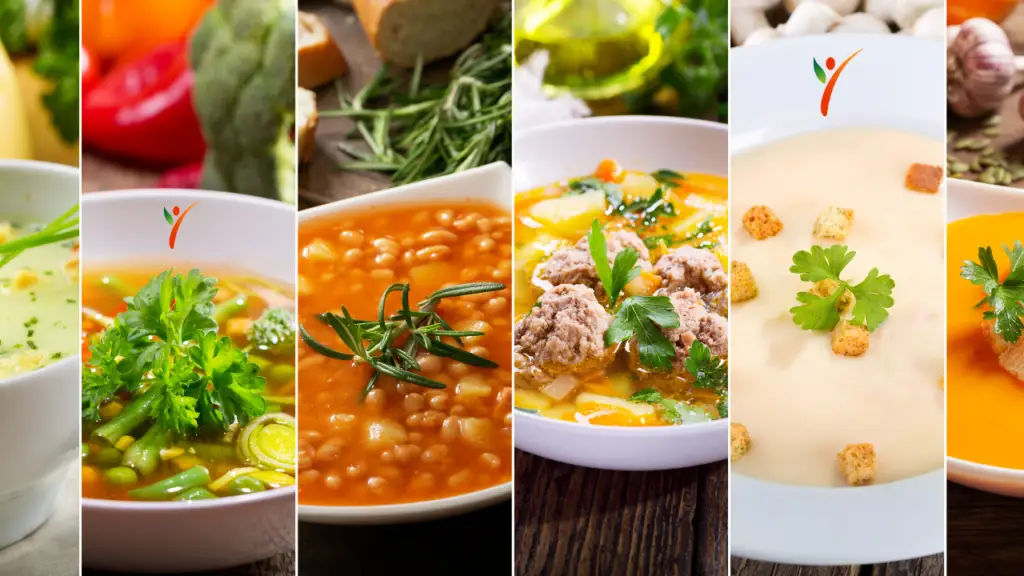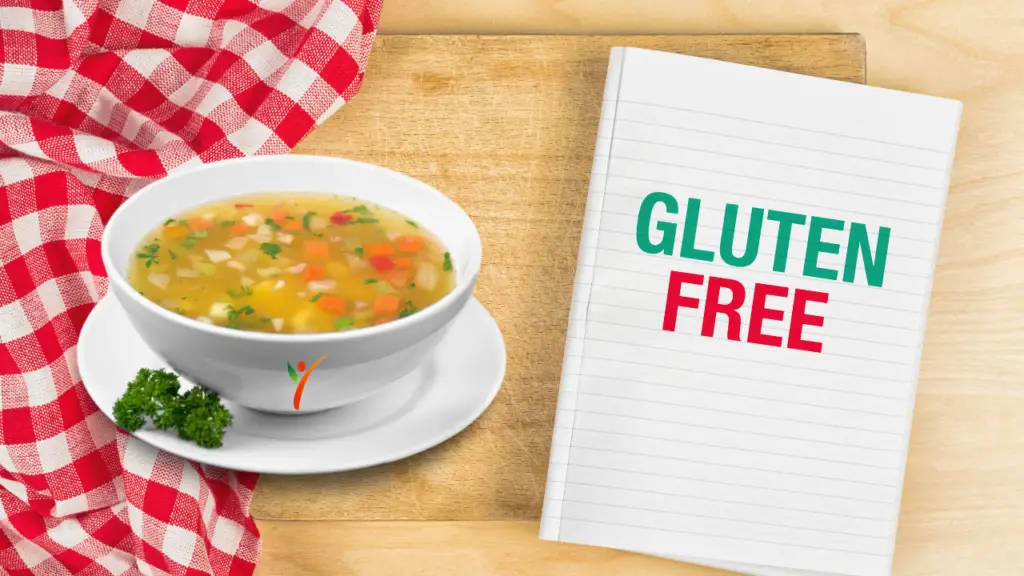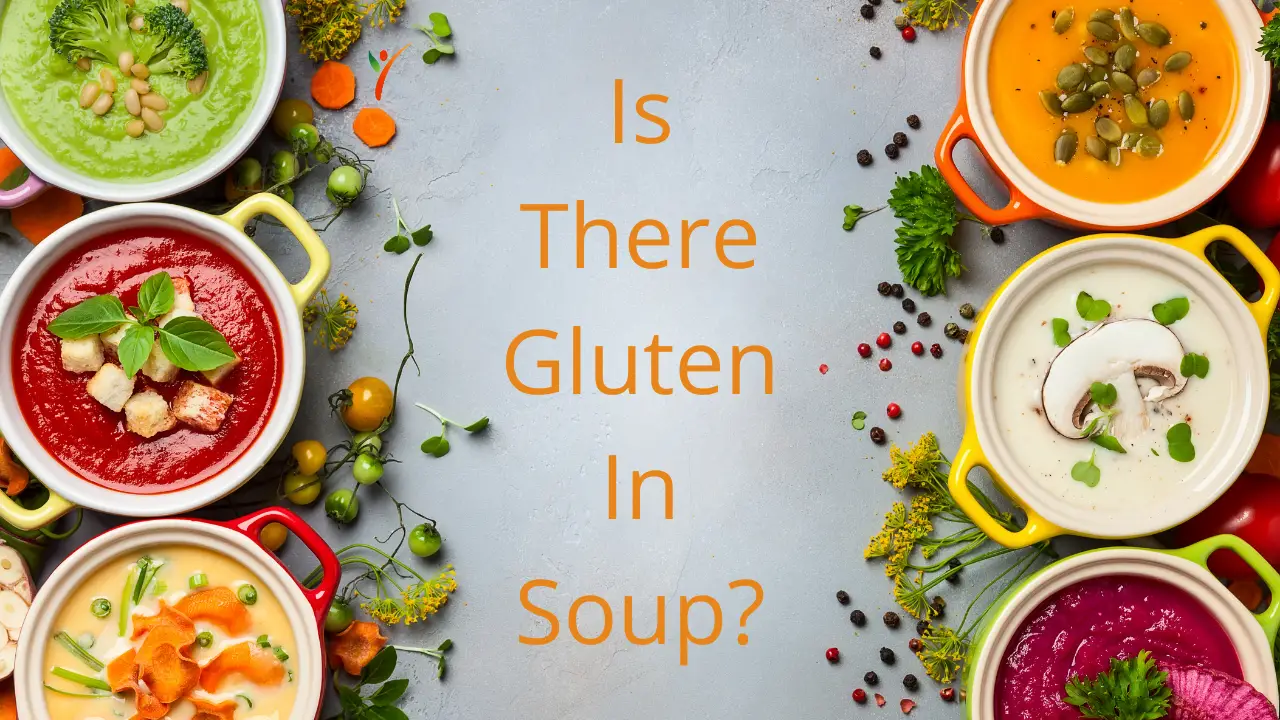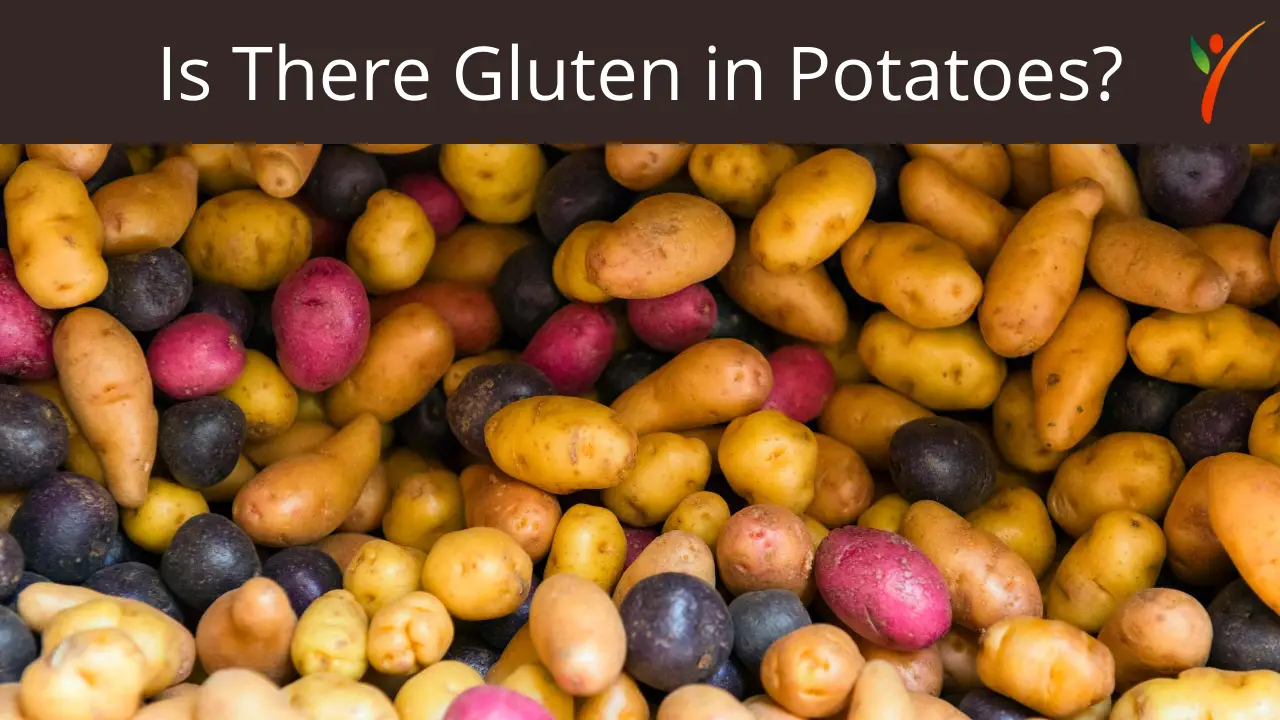Who doesn't love a bowl of nutritious homemade soup on chilly nights or during the winter season? Most of us have grown up with soup in the winters or have eaten them on occasion. This incredible bowl of liquid delicacy is perfect as a quick meal, appetizer, or even dinner.
But should you be eating soup if you're moving towards following a gluten-free diet? We've got you covered with all the information you need to know about soups on a gluten-free diet!
What is Soup?
Primarily a liquid food, soup is made by mixing various ingredients. Soup is a combination of chicken, fish, legumes, or vegetables in water, stock, or even milk. Thus, in simple words, soup is a liquid stock/broth base with meat and veggies.
But this definition also matches that of a stew, so how do you differentiate them? The characteristic feature of soup is the liquid portion, while stew consists of a higher proportion of solid ingredients.
Types of Soups

You'll see numerous types of soups on the internet and at the store. To decide the soup that you would enjoy, you'll need to know the types. The soup can comes in two main types, i.e., clear soup and thick soup, which further branch out. Here's a detailed explanation of the main types to help you understand the family of soups.
- Clear Soups:
This soup is clear, as the name suggests, transparent, and simple yet quite tasty. They are usually made without flavorings, spices, or starch and are great on a liquid diet. They can either be garnished with vegetables and meats or served plain. A famous example is the consommé. It is strained by using a muslin cloth or a strainer. Bouillon is another well-liked clear soup, but it is not strained and also has solid ingredients.
- Thick Soup:
In contrast to the clear soup, this type is less dense, watery, and somewhat opaque than transparent. Adding thickening agents, in addition to puréeing, gives it a heavier consistency. Depending upon how the thickening happens, we can classify these soups even further.
- Cream soup:
Being named after its main ingredient, such as “Creme De Tomate.” It is thickened by cream and liaison, manié, beurre, roux, or various other thickening agents. Using milk will dilute the sauce to achieve the correct consistency.
This soup needs to have a different taste of the main ingredient and a smooth texture. Simultaneously, it shouldn't be too thick or have the starchy flavor of raw roux. Once the cream soup has passed this quality test, you can recommend it to a friend without any hesitation.
If you are using both milk and cream, curdling can be a big problem. It can be due to the acidity of the ingredients or heat while cooking. To save yourself from this disaster, make sure you don't boil the soup after the addition of milk or cream. With the help of roux or any other agent, go for thickening the stock before adding milk. Always heat milk in a different container.
- Veloute soup:
Veloute is a French word that means “velvety,” which is the soup's final appearance and texture. The primary thickening agent is a veloute sauce or a blond roux. A liaison of egg yolks gives that velvety texture and to prevent egg yolk coagulation. However, do not boil the soup after adding the egg yolks.
- Puree soups:
This soup is from using vegetables with a higher starch content in water or stock. The soup gets its name from the next step, which is to puree the soup. Since we use starch-based vegetables, no other thickening agent is required, and these alone are sufficient.
Why You Should Eat Soup

Soup is one of those rare dishes which isn't only delicious and full of varieties. But it is relatively simple to create a tasty soup that is good for you. We are providing a few reasons you should be having soup as much as possible with the numerous benefits it offers:
- Boosts Immune System-
Ever wonder why everyone starts having soup once they feel sick? Well, it is factual that soup helps boost our immune system. Mayo Clinic stated that along with other various properties, soup also shows an anti-inflammatory action.
Additionally, it also helps increase body temperature a bit, which allows the sick person feel better. The hot base also soothes a sore throat.
- Good Source of Hydration-
In summers, it isn't that difficult to stay hydrated because water intake is high compared to the winter season. Although, in winter, people usually drink less water and expose themselves to the risk of dehydration.
Soup can be the solution to this as well. Since soup is mostly liquid, it can be the ideal way to stay hydrated and keep your water levels balanced. It also fulfills the craving of having something hot and warm to keep cozy.
- Healthy and Nutritious-
Soup contains most of the vital nutrients, and it also holds onto them—the broth is a vitamin and mineral-rich source. Moreover, healthy fibers in soups keep the digestive system healthy, help eliminate constipation, and prevent bloating.
- Convenient-
Soups don't need a lot of preparation or ingredients either. If you're short on time, you'll need a few minutes to cook soup in an instant pot. Add in a bunch of vegetables and proteins, whatever suits your taste, and you'll have a delicious soup on hand—making soup extremely convenient in terms of preparation time as well as an inexpensive option.
- Easily Freezable-
If you're someone who wants to prepare their meals beforehand and quickly heat them, soups are for you! You can prepare soups on the weekend and freeze them, and then you will have a quick meal without having to fret about your lunches. Whether you're sick or need a quick option for an office lunch, soups are a perfect choice.
- Lose Weight Effectively-
Studies show that eating soups can result in a healthier body mass index (BMI). Consequently, this leads to the attainment of the required calories with a more nutritious meal. Have you ever felt that you eat less if you've eaten soup before the main course?
It is because soups make your digestive system feel ‘fuller' for a prolonged period, making you eat less. Hence, soup is especially beneficial for anyone wanting to lose that extra weight.
Why Avoid Gluten in Soups?

If an individual has celiac disease and consumes gluten, it triggers an immune response within the small intestine. The lining of the small intestine then becomes damaged, leading to problems in absorption. This intestinal damage can lead to adverse symptoms such as diarrhea, anemia, weight loss, bloating, etc.
Moreover, consuming gluten as a celiac patient or someone with gluten sensitivities can also cause indirect adversities due to malnutrition. In children, this can prove to be detrimental to ideal growth and development. So one should be very cautious regarding gluten.
Soups and Gluten
By this point, you're probably familiar with the fact that most, if not all, processed foods contain gluten. It is surprising to know how easily gluten can hide in processed foods. Canned soups can contain not one but numerous ingredients that might include gluten in them. Even if you're eating at a restaurant, soup can have sauces, wheat noodles, flour, wheat starch, etc.
All of these are ingredients that can contaminate your healthy soup with the gluten aspect. It is easier to avoid gluten-containing ingredients if you're making your soup. But sometimes we want a quick and easy alternative, a soup you can buy from the store. Here are some companies you'd like to take a look at that bring gluten-free canned soups at your disposal.
- Campbell Soup Company-
Campbell is a renowned company in the US that specializes in processed food. One of the trademarks of Campbell's is its wide variety of delicious soups. Campbell's officially produces nearly a hundred soup products that are considered gluten-free according to FDA regulations. From the classic tomato soups to chicken soups, you can find whatever your heart desires from their gluten-free list.
- Pacific Foods-
Pacific claims itself to be a manufacturer of only organic and natural foods. The ingredients used in their food are fully organic without any additives that can be harmful to health. Furthermore, Pacific states that the company's numerous types of soups are naturally gluten-free and sometimes even vegan-friendly. You can easily find their creamy tomato, butternut squash, and cream of chicken soup on store-shelves for gluten-free options.
- Progresso-
Progresso has taken healthy soups and given them a unique mouth-watering touch. What's more, is that Progresso is one of the favorites for those looking for gluten-free soup options. Not only does it comply with certified gluten-free regulations, but it has also partnered with the Celiac Disease Foundation. For this reason, they have one of the vastest gluten-free soup lines and continue to add in more flavors.
Final Words
Soups are a healthy alternative to meals, giving both flavor and nutrition to you in one bowl. Make it with only the liquid content, or add your favorite ingredients; one can never go wrong with soup! Check with restaurants before you order, read food labels, buy gluten-free canned soup, and you're on the right track to eating a gluten-free diet.
Keeping gluten out of the foods you eat will ensure you keep living a healthy life!

Live Extraordinarily!




